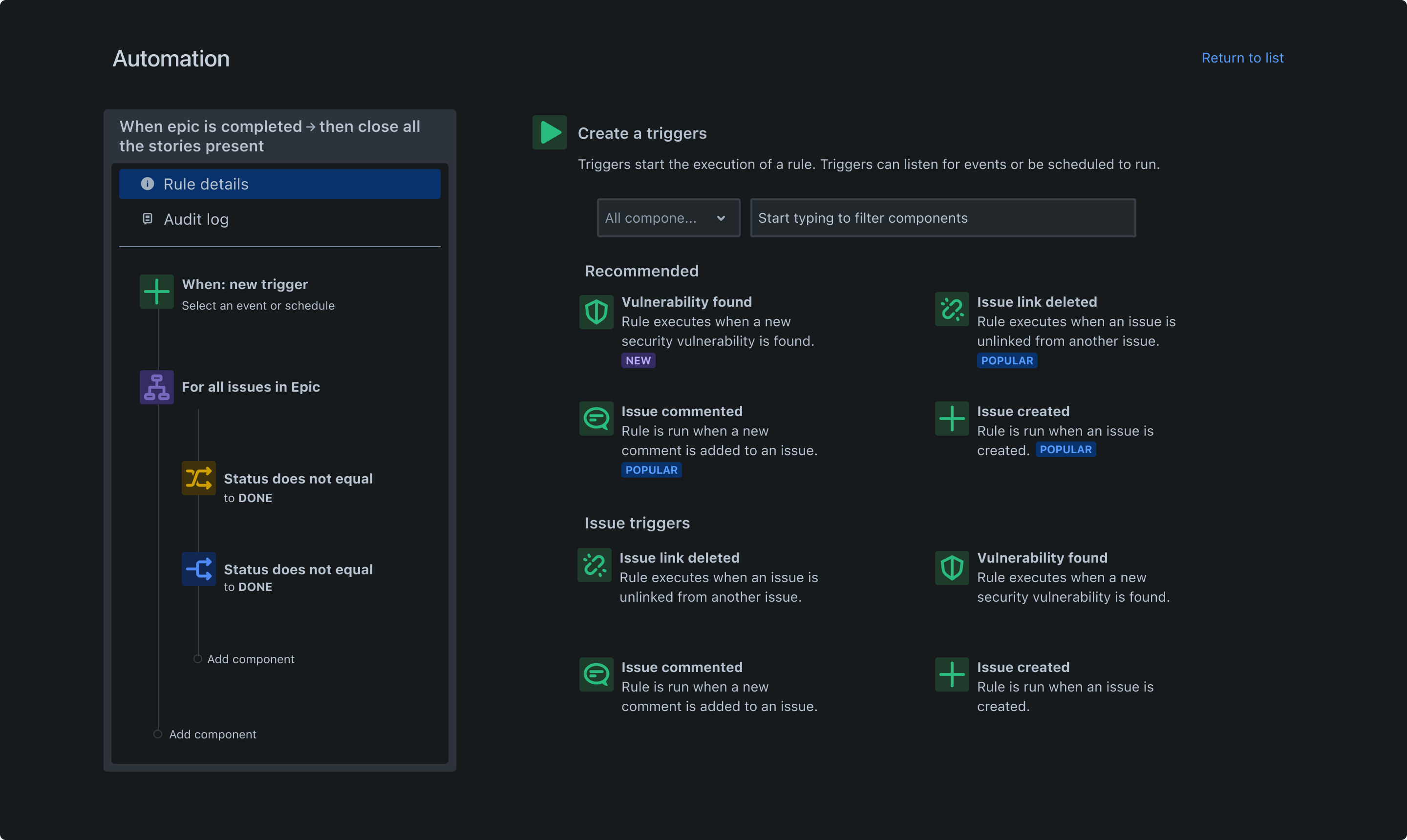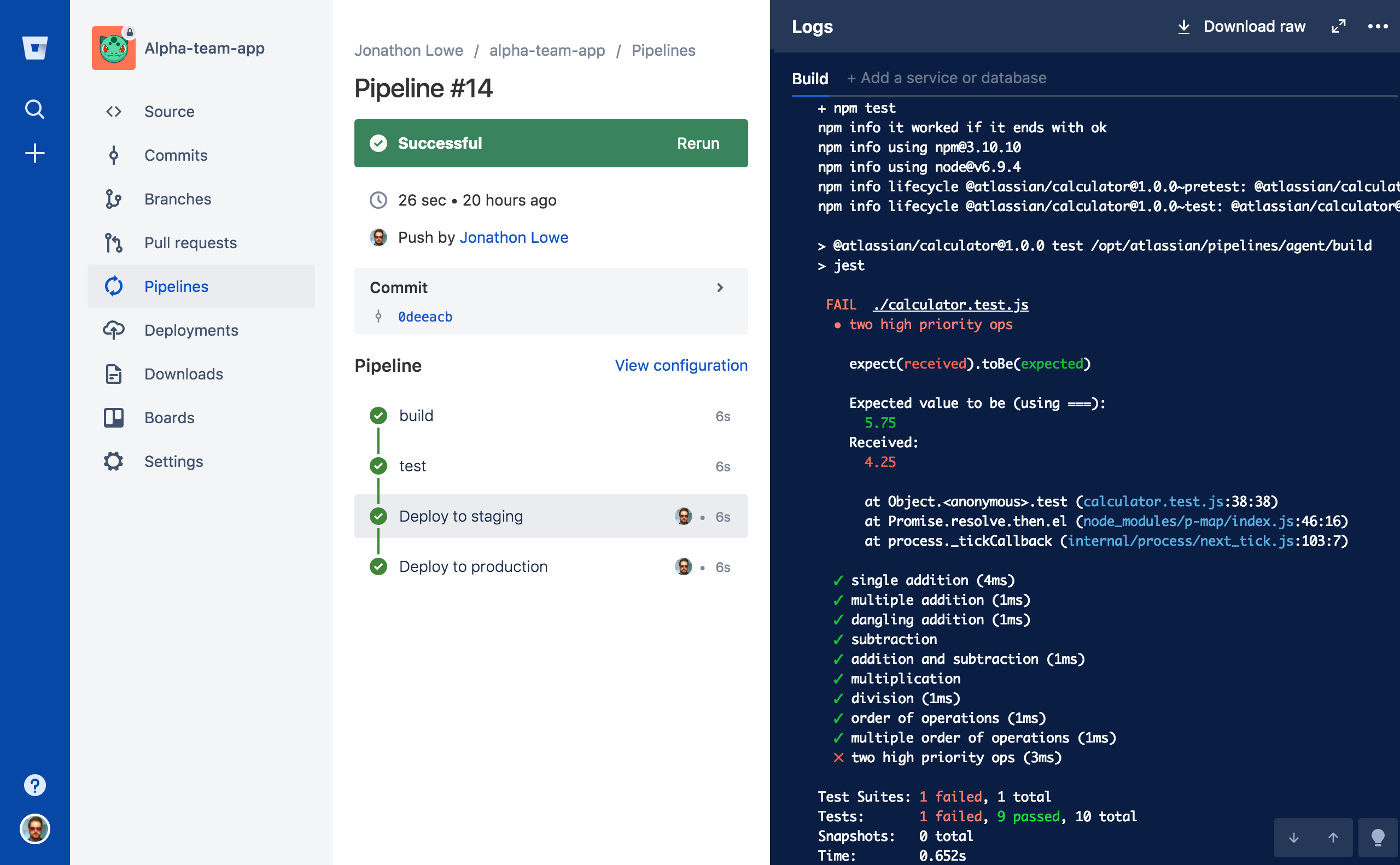Repetitive workplace tasks drain time, resources, and productivity. They create distractions for employees and obstruct team communication and coordination. Workflow automation software puts an end to productivity-inhibiting distracting, repetitive tasks.
Workflow automation software increases efficiency and communication by creating predefined rules, sequences, and actions. Automated workflow software improves Agile workflows. It decreases the need for manual intervention, reduces errors, and saves time for critical tasks. The tool promotes better teamwork and communication, speeds up task completion, and improves transparency and accountability.
Learn how workflow automation software improves productivity and business processes and uncover the nine best workflow automation software options to help you decide which best suits your needs.
What is workflow automation software?
Workflow automation software simplifies and improves business processes by reducing manual effort through predefined rules, sequences, and actions. This process enhances task management and collaboration along with organizational efficiency and productivity.
When companies automate repetitive tasks, employees have more time to work on strategic or creative activities. Automated workflow software fosters team members’ collaboration through centralized communication channels and shared workflows. It also enables smooth information exchange and faster decision-making.
Advantages of workflow automation software
Incorporating workflow automation software into your business processes means the following:
- Employees can focus on more complex tasks by automating repetitive tasks.
- Teams make fewer mistakes because automation helps them execute tasks consistently and accurately.
- Collaboration improves among cross-functional teams due to centralized communication and information-sharing platforms.
- Businesses can make decisions faster via centralized and shared communication channels that enable seamless information exchange.
Productivity increases thanks to optimized processes, error-free operations, improved collaboration, and effective use of resources.
The top 9 workflow automation software solutions
You can transform your business with workflow automation software. You can increase collaboration, simplify and improve processes, and enhance productivity and task management. But what software option works best for you? We chose the top nine—based on your specific goals.
Best for Task Automation: Jira Software

Jira Software automates tasks with a robust task and issue management platform, including a task tracking template and a personal task tracker template. Automation rules assign issues, update fields, and trigger notifications based on predefined conditions. Jira’s versatile automation capabilities streamline workflows, enhance efficiency, and ensure smoother task management.
Best for cross-functional collaboration: Jira
Jira enhances cross-functional collaboration, ensuring teams work efficiently toward shared goals via an intuitive platform. This software offers shared boards, real-time updates, and customizable workflows that promote transparency and cooperation across all teams.
Best for documentation: Confluence
Confluence enables teams to work together seamlessly on various documents and content. With its user-friendly interface, rich text editing, version history, and commenting features, Confluence simplifies the process of document creation and editing, streamlining team collaboration, enhancing productivity, promoting effective communication, and encouraging knowledge sharing across the company.
Best for resource allocation: Jira Software Advanced Roadmaps
Advanced Roadmaps for Jira Software is a powerful tool for project planning and resource allocation. With Advanced Roadmaps, teams can effectively visualize capacity, plan project timelines, and manage dependencies. Project managers can optimize resource allocation with a comprehensive overview of project progress, workload, and availability.
Best for deployment automation: Bitbucket

Bitbucket integrates seamlessly with various CI/CD tools, enabling automated builds, tests, and deployments. The pipelines feature automates the entire software delivery process, reducing manual errors. Bitbucket’s customizable workflows and intuitive interface make it an excellent choice for streamlining deployment processes.
Best for improving productivity: Suretriggers
SureTriggers automates crucial processes, streamlines repetitive tasks, and reduces manual workloads. Setting up triggers and predefined actions saves time, reduces human error, and enhances accuracy and consistency. Teams can focus on high-value activities, innovation, and strategic initiatives that improve productivity.
Best for risk management: Jira Software
Jira Software helps project managers mitigate risks. Options include issue tracking, kanban boards, customizable workflows and permissions, and reporting and analytics features. The issue tracker template includes detailed issue descriptions, along with a timeline view that enables teams to monitor project progress, identify potential risks early, and adapt quickly to mitigate those risks.
Best for software integration: Zapier
Zapier is a user-friendly platform that facilitates the integration of various software applications. It allows for the easy creation of “Zaps”—automated workflows that don’t require technical knowledge. Zapier enables seamless connections between different apps, streamlines processes by automating repetitive tasks, and enhances productivity for users across various industries.
Best for reporting and analytics: Kissflow
The Kissflow platform’s robust reporting and analytics features provide valuable insights and track performance. Customizable dashboards help monitor key metrics and project statuses effortlessly, and built-in reports offer comprehensive summaries of processes, workflows, and tasks. Custom analytics capabilities enable tailoring reports and metrics according to specific business needs.
Best for enterprise businesses: Jira Align
Jira Align provides real-time visibility across companies, offering a comprehensive view of projects, teams, and initiatives. Stakeholders can access current information to make informed decisions and engage in strategic planning.
Jira Align facilitates team synchronization, ensuring that all teams work together toward common objectives, fostering cohesion and increasing efficiency across the enterprise. Additionally, Jira Align helps optimize customer value by prioritizing the delivery of products and services that meet customer needs, ensuring the company remains customer-centric and responsive to market demands.
Best for IT service management: Jira Service Management
Jira Service Management stands out with its robust capabilities tailored for default IT service management, or ITSM. Jira Service Management provides default ITSM practices that cover various service-related tasks, such as service requests, incident management, problem resolution, knowledge base, and asset and configuration management. The platform is highly flexible and customizable to align with a company’s requirements, rules, and regulations.
Jira Service Management also includes comprehensive metrics that enable users to track key performance indicators and dive deeper into data for advanced business intelligence. Jira Service Management’s ITSM template supports ITIL practices that streamline IT service delivery and management.
Any of the options above can be an excellent choice for you — and Jira Software integrates with these and many other tools that improve workplace productivity. Jira additionally offers Agile project management tools and a project management template. With Jira, users can pivot when necessary and break their work into smaller, manageable pieces. The document approval template streamlines workflows and provides a structured framework for managing document approvals.
Get started with Jira Software
Repetitive tasks hamper growth and morale, create distractions, and obstruct team communication and coordination. Jira Software streamlines business processes with customizable Jira template workflows and automation capabilities.
Jira automates repetitive tasks, assigns responsibilities, and tracks progress, fostering efficiency and consistency in task management. Jira’s collaborative features enable seamless communication among team members, empowering businesses to boost productivity and optimize operations.
Jira Service Management is a robust workflow solution; streamlining service-related tasks, improving task management, ensuring uniform service delivery, and resolving issues. Jira Service Management’s intuitive interface and collaboration tools enable teams to interact seamlessly, enhancing customer satisfaction.
Workflow automation software: Frequently asked questions
What types of tasks can Jira automate?
Jira Software is highly customizable with Jira templates. This software can automate task assignment, issue tracking, and notifications. Jira’s automation rules and conditions allow for creating personalized automation sequences that set triggers based on specific events or criteria.
This flexibility empowers businesses to automate various actions, from simple task assignments to complex cross-team workflows, streamlining processes optimized to fit their exact operational demands. Jira also supports routine administrative actions such as report generation and permission management and helps companies maintain consistency, boosting productivity and project delivery.
Is automation customizable in Jira Software?
Jira’s customizable automation options allow businesses to create tailored solutions that best suit their workflows. Users can design and configure workflows, rules, and triggers to automate tasks that align with their specific processes. Users can define sequential steps, statuses, and transitions that match their requirements.
How does Jira integrate with other tools for workflow automation?
Jira software integrates with third-party applications, including development tools, project management platforms, collaboration software, and testing frameworks. Through APIs and integrations, Jira facilitates the flow of information, streamlines workflows, enhances productivity and provides users with a centralized platform to manage tasks and projects efficiently.